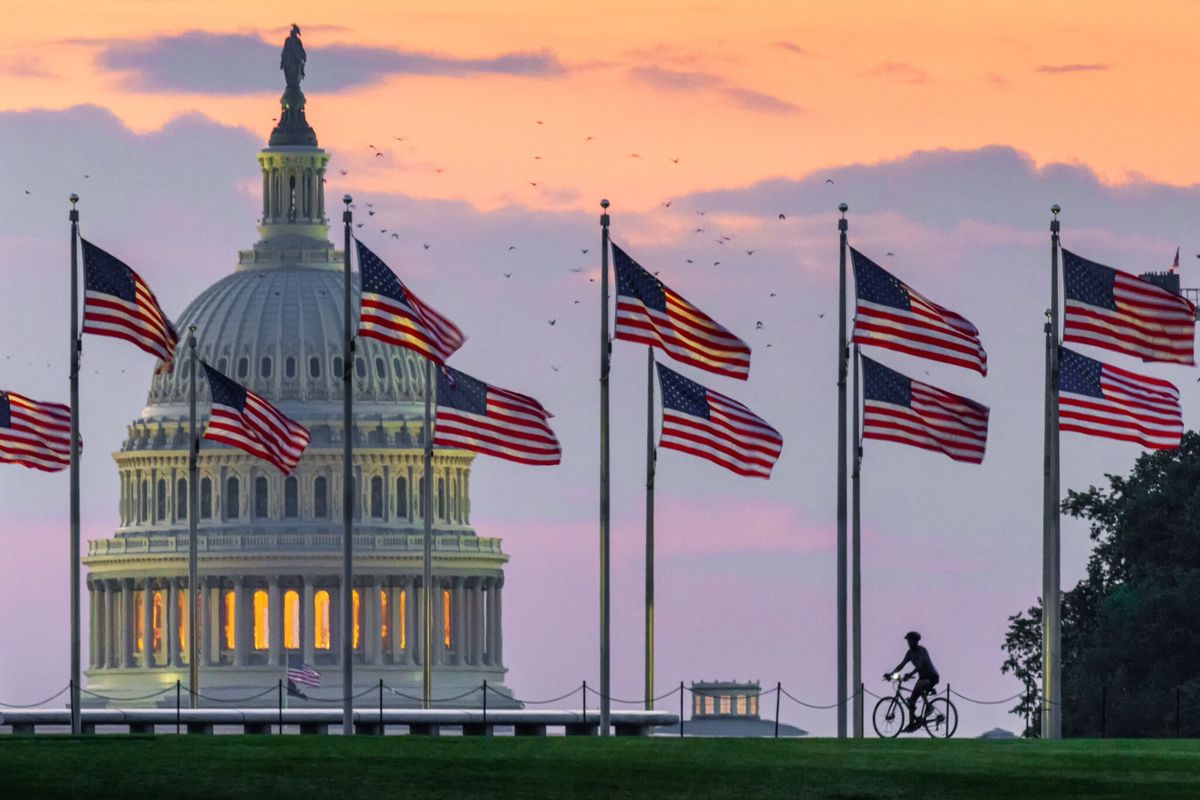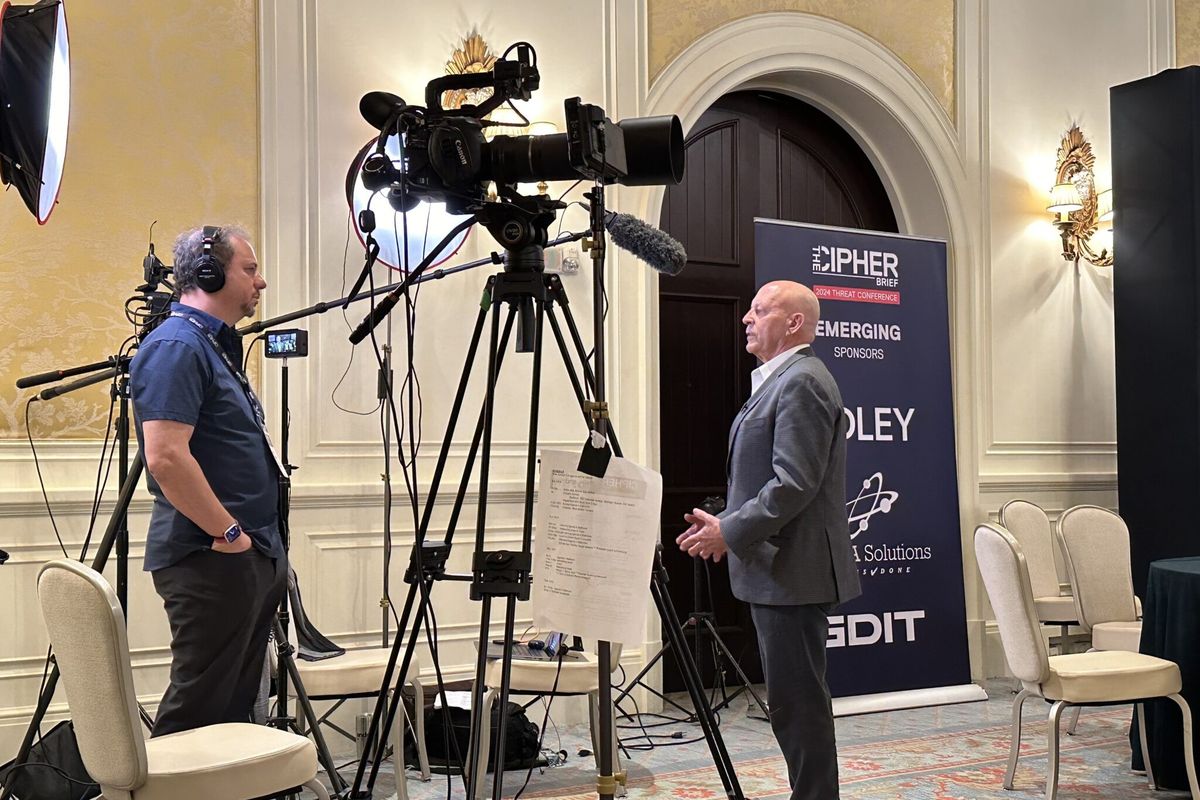President Donald Trump is not the first American public figure to go to war with the press, nor is he the most extreme in his views. Even without benefit of Twitter, the antipathy of Union General William Tecumseh Sherman for the Civil War-era Fourth Estate manifested itself in a memorably vituperative stream of quotes. “The American press,” he asserted, “is a shame and a reproach to a civilized people…When a man is too lazy to work and too cowardly to steal, he becomes an editor and manufactures public opinion.”
Defamed as “insane” by the newspapers, Sherman responded in kind, calling his tormenters a “set of dirty newspaper scribblers who have the impudence of Satan.” In keeping with that theme of eternal damnation, he reacted with undisguised glee on being (erroneously) told one morning that three journalists had been killed by shellfire. “That’s good!” he said, “Now we’ll have dispatches from hell before breakfast.”
While he bridled at personal attacks on him, Sherman reserved particular loathing for those whom he described as “defamers of the army and publishers of military secrets.” Sherman’s anger over sensitive material appearing in the press had a basis in fact. Indeed, Confederate commander Robert E. Lee cited information gleaned from careful reading of northern newspapers smuggled south as one of his principal sources of intelligence.
“I hate newspapermen,” Sherman raged, “They come into camp and pick up their camp rumors and print them as facts. I regard them as spies, which, in truth, they are.”
Famous, and infamous, for ‘making Georgia howl’ during his March to the Sea, Sherman was also merciless in dealing with the press. In the course of the 1863 Vicksburg campaign, Sherman took the unheard-of step of court-martialing New York Herald correspondent Thomas Knox for violating his order that any reporters sending out information that might give ‘information and comfort’ to the enemy would be ‘arrested and treated as spies.’ Fortunately for Knox, he was only banished from the Army. A conviction for spying could have earned the reporter a death sentence, an outcome that likely would not have much bothered Sherman.
In his fury over the exposure in the press of secret information, Sherman has much in common with American intelligence officers of today, who are trying to protect secrets, and lives, amidst a deluge of news reports fed by leaks of classified information. An early July 2017 U.S. Senate report concluded that the Trump Administration faces an ‘alarming’ wave of disclosures of classified data, noting that the number of leaks during the first sixth months of the Trump Presidency was seven times greater than those that occurred during the same period of the presidencies of George W. Bush and Barack Obama.
The potential consequences of such disclosures for U.S. national security, not least among them the exposure of intelligence sources and methods and a consequent lack of confidence in the ability of the U.S. to protect secrets provided to it by agents and foreign partners alike, demand that the issue of leaks be addressed with urgency. Failure to plug those holes will cripple the ability of the U.S. to collect and protect intelligence that is essential to dealing effectively with such pressing national security issues as ISIS, North Korea, Russia, Iran, and China.
News reports based upon classified information provided by those frequently described ‘as present and former government officials’ are clearly calculated to maximize the notice those stories garner and, consequently, the damage they inflict on the current Administration. This is not a novel tactic. As President Reagan once quipped, “I decided that what I was going to say I wanted to get a lot of attention, so I'm going to wait and leak it.”
What is new is a palpable decline in professional discipline among some with access to classified information who appear willing to divulge it for political reasons. Irrespective of motivation, however, the leaking of such information is never justified or justifiable. As President Obama made clear, “There's a reason why these programs are classified.” The law makes no allowance for the motives driving those who violate their secrecy oaths in exercises in egotism or pique.
CIA Director Mike Pompeo is surely right in asserting that these revelations are partly a result of the “worship” of leakers. The once clear line between the criminal act of disclosing classified information and appropriate resort to protected whistleblower status has, sometimes with malice aforethought, been blurred.
The glorification of the traitorous acts of Edward Snowden has engendered confusion among broad swaths of the public (and, apparently, in the minds of some officials) as to what constitutes leaking as opposed to whistleblowing. That whistleblower imprimatur has also been ascribed by some to leakers who have chosen to ignore their professional obligations.
A similar degradation in professionalism has shown itself in the eagerness of some in the media to publish classified information with little or no regard to accepted journalistic standards for vetting that material or for the consequences for U.S. national security. The journalistic practice embodied in such legendary American reporters as Ernie Pyle, an approach that was at once appropriately skeptical but not irresponsibly adversarial regarding the conduct of national security activities and policy, seems to be wholly absent in some of his successors.
There being an inherent tension between secrecy and the democratic principles that are the basis of our republic, the press plays a crucial role in educating and informing citizens about what secret organizations do in their name. It is, however, hard to see how the publishing of intelligence that could help in targeting the leader of ISIS; the disclosure of the purported details of a sensitive counterintelligence investigation; or the outing of an under-cover CIA officer; to cite but a few recent examples, serve any higher purpose than acting as social media click bait.
In such an environment, an intelligence officer (or, in my case, a former officer) receives an unsolicited call or email from a reporter with trepidation. This is so because that officer knows such a contact will likely confront him or her with the probability that information about a classified activity, which the officer may have knowledge, has leaked, and that the reporter is attempting to get the officer to speak about information the latter is sworn to protect.
Intelligence officers, particularly those who have had to make an unsolicited approach to an operational target (the ‘cold call’ of Cold War spy lore), are often amused by reporters’ obvious use of familiar elicitation techniques, to include appeals to ego and warnings about the need to set the record straight lest the officer’s actions or intent be erroneously presented. Yet, however superficially amiable the uninvited contact with a reporter, the intelligence officer never views such a call as a friendly act, as it almost invariably portends the exposure of information that can damage national security, can put at risk lives of people who work with U.S. intelligence or, particularly in the age of terror, can potentially endanger that officer and his or her family.
Sherman judged newspapermen “the most contemptible race of men that exist.” Having had to dispatch officers to explain to agents why the secrets they passed us appeared in the press, and having seen officers’ names published despite their requests and those of the CIA to both the journalist and paper involved not to do so, I must confess some sympathy for that view. Indeed, ‘dispatches from hell before breakfast’ could easily describe stories based upon leaks that appear with alarming regularity in my morning newspaper.
In truth, however, Sherman’s ‘most contemptible race of men’ are those who violate their sacred oaths by divulging secret information with which they have been entrusted by the same American people they are sworn to protect. In my experience, leak investigations are notoriously difficult to conduct, much less to prosecute. Nonetheless, for the good of the country, the Trump Administration needs to move aggressively to stem the current torrent of leaks. Putting the heads of a few leakers on pikes (figuratively speaking, of course) would be a good place to start.















